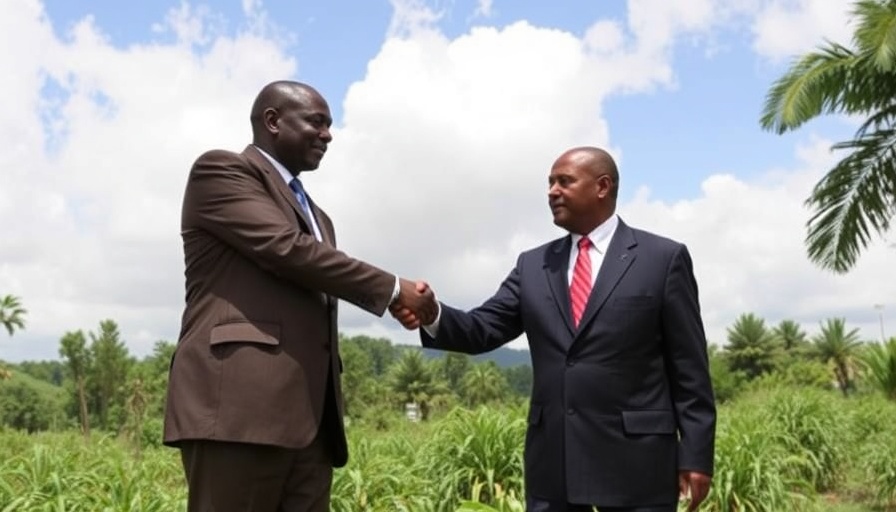
The Significance of the Congo-Rwanda Accord in a Tense Region
The upcoming signing of the peace agreement between Congo and Rwanda, taking place in Washington, DC, is poised to reshape diplomatic relations in a region scarred by decades of conflict. With the escalation of violence in eastern Congo, particularly due to the advance of Rwandan-backed M23 rebels, this accord brings both hope and skepticism.
Identified as crucial to alleviating ongoing tensions and fostering economic stability, the agreement reflects a collaborative approach to keeping both nations in check. Despite its broad objectives, the past performances of similar treaties cast a shadow of doubt regarding its implementation and effectiveness. As the international community watches closely, investor confidence is at stake.
Contextual Insights on the Congo Conflict
The turbulence between Congo and Rwanda is deeply rooted in historical grievances that trace back to the Rwandan genocide in 1994, impacting both nations' political and social landscapes. France and the U.S. have a longstanding interest in this conflict, with the possibility of mineral access in Congo becoming a focal point for these engagements. With reports confirming Rwanda's involvement with M23, the stakes could not be higher for both governments.
Any peaceful resolution hinges on the effective integration of multinational interests while addressing the community's needs in eastern Congo. Diplomatic progress can be realized through continuous dialogue and acknowledgment of past injustices.
The Economic Implications of the Accord
The U.S. seeks to invest billions in Congo's rich mineral resources, including copper, cobalt, and lithium—essential commodities in the global market. This agreement symbolizes more than mere peace; it could herald a new era for economic cooperation and investment opportunities in the region. By fostering a stable environment, both nations hope to attract significant investments that may benefit their economies and potentially minimize civil strife.
This harmonization stands to position the region as an integral player in the global economy, with countries like China currently dominating the mining sector in Africa. To mitigate a reliance on foreign powers, the U.S. and allied nations must forge equitable partnerships that safeguard livelihoods alongside financial interests.
Challenges Ahead and Future Predictions
Despite the optimistic rhetoric surrounding the signing ceremony, the road to lasting peace is fraught with challenges. Historical precedents show that agreements can often collapse without substantial commitment and mutual respect between feuding parties.
Both governments have vowed to continue negotiations for a more comprehensive peace treaty following this initial signing. The potential outcome could alter not only bilateral relations but set the stage for a shift in geopolitical dynamics in Africa. Investors should remain vigilant, as the political climate remains fluid, requiring adaptive strategies.
As we look forward to the implications of this accord, it becomes clear: peace is not merely the absence of conflict, but the presence of mutual understanding and cooperation. Business leaders and policymakers must engage with this narrative as they navigate investments and diplomatic relations aimed at fostering a stable Africa.
 Add Row
Add Row  Add
Add 


Write A Comment